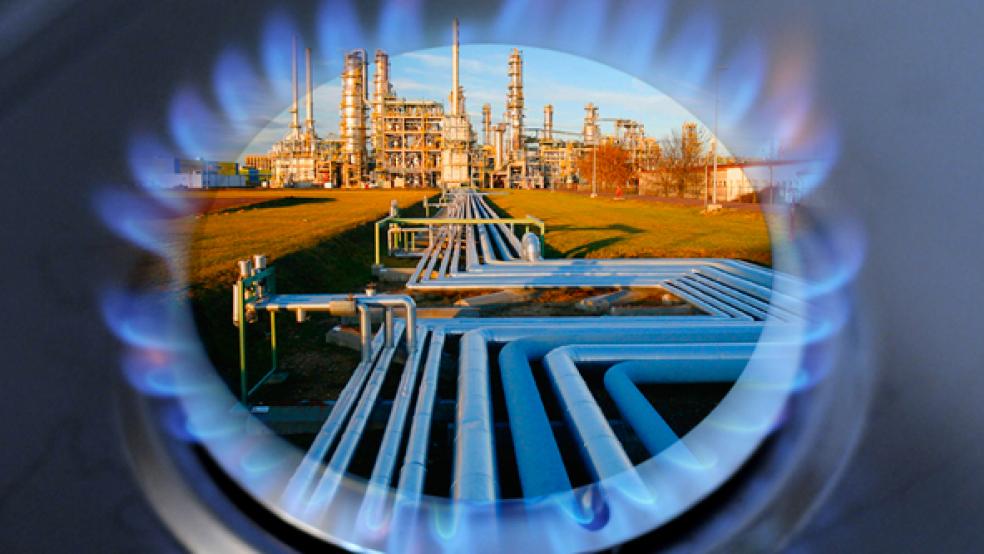The U.S. is on the cusp of an era of domestic energy abundance that could finally end the nation’s dependence on foreign oil, according to some energy industry officials and analysts.
The opening of Canada’s vast oil sands to exploration could turn our friendly neighbor to the north into the next Saudi Arabia. Fracking for shale-based natural gas, meanwhile, has exploded in Ohio, Pennsylvania and upstate New York. Other states with shale deposits are lining up to open their fields and forests to further exploration. It could turn a handful of U.S. states into an OPEC-like gas cartel, especially if, as hedge fund operator T. Boone Pickens hopes, an increasing share of the U.S. vehicle fleet converts to flex-fuel engines that can run on liquefied gas.
Despite near apoplectic opposition by most oil and gas executives to the Obama administration’s energy policies (they cite the moratorium on off-shore oil drilling after BP’s Deepwater Horizon disaster; Obama’s go-slow approach to the Keystone pipeline; and the president’s persistent attacks on special tax breaks for fossil fuels), the domestic energy explosion is happening on this president’s watch. “It is the energy equivalent of the Berlin Wall coming down,” says Robin West, chairman and chief executive officer of PFC Energy, a global consulting firm that specializes in the oil and gas industries.
And should it continue, these experts predict it will rejuvenate the domestic economy via a productivity revolution born from searching out these hard-to-extract carbon-based fuels. Manufacturing could add 3 to 4 million new jobs in this decade in old-line industries like steel, as its rejuvenated mills turn to cranking out drilling and transmission pipe and other extraction equipment, they say.
This domestic energy revolution would also reaffirm the U.S.’s role as the globe’s economic leader. Think what a plummeting oil import bill would do for the U.S. current account deficit and balance of trade, they say. Meanwhile, the U.S. would no longer have to bear the burden, both human and financial, of waging global police actions to ensure continued access to world oil supplies.
“Can you imagine the U.S. sending 100,000 troops to Kuwait if we didn’t need Middle Eastern oil? I don’t think so,” West says.
“We’ll be able to have a values-based foreign policy,” agrees Edward Morse, global head of commodities research at Citi Investment Research. “We’ll no longer be kowtowing to foreign dictators.”
BUT IS IT ALL JUST PIE IN THE SKY?
Yet as the old saying goes, if something sounds too good to be true – it probably is. There are a fewenvironmental hurdles – critical hurdles for sure – that that must be overcome on the way to an energy-abundant future based on carbon-based fuels.
Most immediate are the environmental challenges posed by the spread of fracking and oil shale extraction across a broad swath of the North American continent – including heavily populated areas of the Northeast. The fracking process, which pumps a complex mixture of toxic chemicals deep underground under extreme pressure, has the potential to poison lakes, streams and aquifers that local residents depend upon for drinking water and recreation.
“The environmental issues can be managed,” says Adam Sieminski, administrator of the Energy Information Administration at the U.S. Department of Energy. “But it will require state and federal regulations. Getting them right will be critical.”
Industry officials say they are not opposed to regulation, but only want “clarity and continuity,” according to John Hofmeister, who founded Citizens for Affordable Energy after retiring as president of Shell Oil Co. But even minor accidents – not to mention a disaster of the scale of the 2010 Deepwater Horizon oil spill in the Gulf of Mexico – can give rise to public demands for higher standards, which inevitably draw fierce industry opposition.
A regulatory standoff in Washington could lead environmental and community groups to tie up energy exploration activities in court for years. Most of the newfound oil and gas deposits aren’t in the Southwest’s deserts or depopulated Plains states, although some are. Rather, they tend to be in off-shore areas near popular beaches, on pristine public lands in remote locations, or in populated ex-urban and rural areas of major states with little experience or a long-forgotten history of energy exploration.
Hofmeister says the public should see those regulatory challenges as economic opportunities. “Waste management can be a growth industry,” he says. “Energy and the development of energy – all kinds of energy, not just oil and gas – could be the basis for a whole new era of prosperity.”
Touters of a coming era of abundant carbon-based fuels also are dismissive of concerns about climate change. “The president is wearing thin when the whole discussion is around carbon,” says Hofmeister. “Whoever can get the ‘both/and’ story right will win the argument with the American public. This ‘either/or’ argument is wearing thin.”
The president claims he’s for all of the above when it comes to energy development. More significantly, some analysts say that policies to limit carbon emissions can actually speed the rapid expansion of domestic and North American oil and gas development. “Gas will displace coal and reduce emissions,” says Michael Levi, director of the Council on Foreign Relations’ program on energy security and climate change.
Putting a price on carbon emissions of somewhere between $15 and $25 a ton would actually increase oil production, too. It would create the economic incentives for oil companies to capture and use carbon dioxide to extract more oil from wells once thought to be depleted. “A carbon price makes that available,” Levi says.





